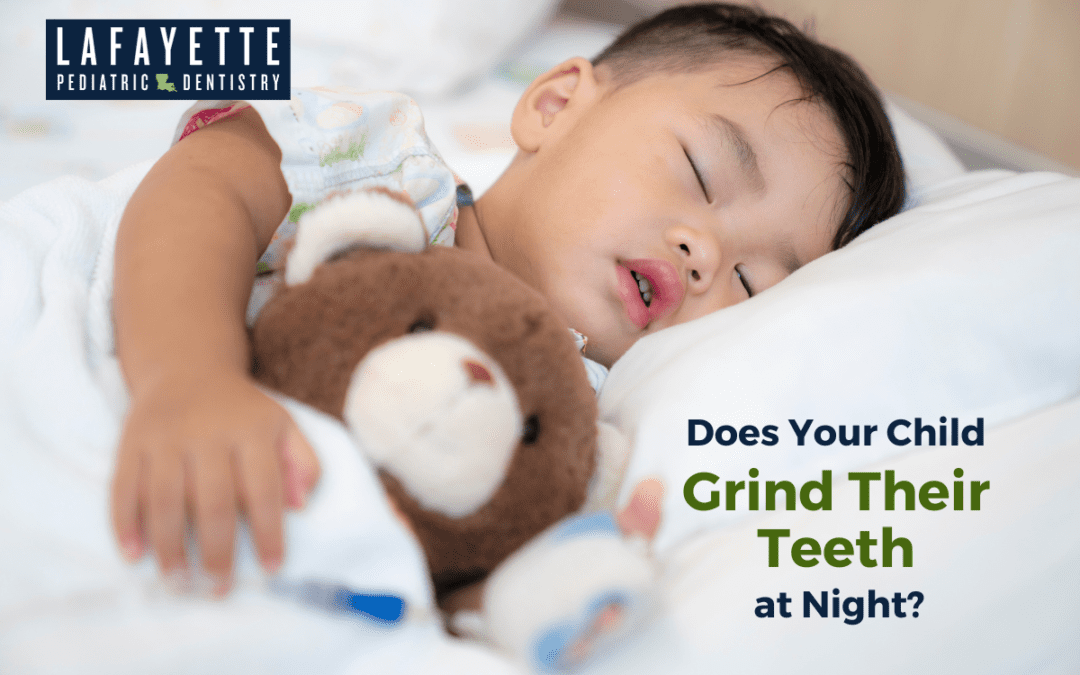It can be a little alarming when you catch your child grinding their teeth while sleeping, right? Don’t worry, you’re not alone in this experience. While this habit may seem worrying, it is actually a common condition that many children outgrow on their own. Let’s explore what you need to know about bruxism in children.
What is Teeth Grinding?
Teeth grinding, also known as bruxism, is characterized by the grinding of teeth or clenching of the jaw during sleep. It is a common condition among children, particularly those under the age of 11.
Parents usually notice their children experiencing bruxism through the grinding noise created during sleep or the wear on the child’s teeth, which causes them to get worn down over time.
Possible Causes of Teeth Grinding in Children
Bruxism in children can be a bit of a puzzler at times. You may find yourself scratching your head trying to pinpoint the exact cause of your child’s teeth grinding. The truth is, sometimes there isn’t a clear-cut reason behind it. However, there are several possible contributing factors:
- Inner ear pressure. If there are pressure changes in the ear, your child may relieve the pressure by clenching their teeth. This is similar to chewing gum during take-off or landing on a plane.
- Pressure from new teeth growing in. Grinding happens as a way to “cope” with or help disperse the sensation of pressure or discomfort from new teeth coming in.
- Psychological factors. Children may grind their teeth as a coping mechanism when feeling nervous or stressed about upcoming exams or life changes, such as starting at a new school or moving to a different place.
- Medical conditions. Bruxism is especially common in children with special healthcare needs, such as Down syndrome or cerebral palsy. You can also learn more about dental care for children with special needs here.
- Sleep disordered breathing (early signs of sleep apnea in children). Your child may not be getting enough air when they sleep (due to enlarged tonsils, a tongue tie, anatomy, or many other reasons). So the body tries to “micro-arouse” itself during deep sleep to get more air, and one of the ways it does this is to clench or grind the teeth together. Usually, more severe wear on the teeth is seen in these cases.
Should I Be Concerned If My Child Has Bruxism?
Many parents ask us if we can manufacture a night guard or mouth guard for their child. We could, but the problem is, we would have to re-make it frequently, as your child grows. Fortunately, the majority of teeth-grinding cases in children are temporary and don’t require any treatment.
The baby teeth may get a little worn, but rarely fracture because of grinding. You may notice a decrease in grinding episodes when your child is between 6 and 9 years old. Most children tend to stop grinding their teeth altogether between the ages of 9 and 12.
If the grinding persists for an extended period of time past this age, your pediatric dentist may prescribe a mouth guard when your child has reached teenage years. If your child has special needs that would preclude them from wearing a mouth guard, interventions such as behavioral modification techniques can help prevent further damage to the teeth caused by bruxism.
Managing and Reducing Teeth Grinding Symptoms
When it comes to managing or reducing bruxism symptoms in children, there are a few strategies that can help.
- Help your child relax before bedtime. Creating a relaxing bedtime routine can work wonders. Encourage your child to wind down before bed with calming activities, such as taking a warm bath or listening to soothing music, and avoiding screen time before bed.
- Address the cause of stress or anxiety. Since psychological factors could also be a cause of your child’s bruxism, it’s important to have open communication with your kid. Talk to them about what could be causing the stress and find a way to resolve it.
- Ensure there is nothing potentially obstructing your child’s airway. Examples would be enlarged tonsils or a low-resting tongue. Have your pediatric dentist and pediatrician do thorough examinations.
- For teenagers and above. Wear a mouth guard to protect your teeth, which will also take the stress of your joints (TMJ) from clenching or grinding.
- Routine dental visits. Regular visits to your child’s dentist will help the dentist to monitor the teeth grinding symptoms. They can help rule out underlying conditions and determine if a treatment plan is necessary.
If you have any concerns regarding your child’s grinding habits, don’t hesitate to talk to your child’s dentist.
If you’re looking for a kids dentist near you in Lafayette, LA, request an appointment at Lafayette Pediatric Dentistry today! Our practice specializes in providing pediatric dental services while ensuring that our young patients’ experience is safe, comfortable, and fun. We look forward to meeting you!
Sources:
